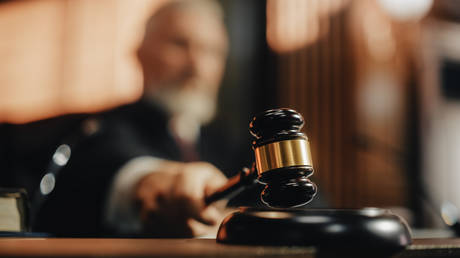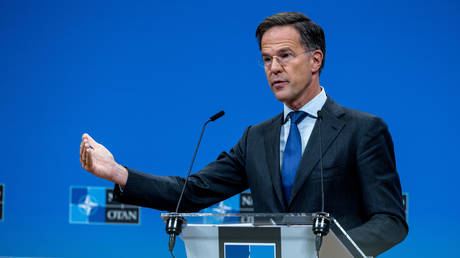Dior; Louis Vuitton; Glossier; Jenny Chang-Rodriguez/BI
The Paris Olympics are attracting luxury brands like Louis Vuitton, Dior, and Armani.They are looking to leverage Paris’ cultural relevance and the return of large audiences.The move comes as economic challenges have squeezed the luxury market.
Paris is bringing an air of luxury to the Olympic Games.
From the custom Louis Vuitton cases presenting the Olympic medals and torch, to Armani attire donning Team Italy, luxury and beauty brands will be all over the Paris Games. The country’s glamorous backdrop has attracted sponsors that include beauty and high-end fashion companies, in what will be the largest proliferation of luxury at any Olympic games.
LVMH is one of the biggest brand partners of the Paris Games, with the conglomerate spending about $160 million, Bloomberg reported. Brands like Dior, Louis Vuitton, Armani, and Prada are shelling out to sponsor athletes or teams, as are more accessible high-end names like Skims, Glossier, and Lululemon. They are looking to capitalize on the brand equity of the Games, the growing interest in women’s sports, and the host city of Paris to appeal to the audience that the weekslong event brings in.
“Paris as a city is just so culturally relevant,” Harry Poole, VP of marketing solutions for Excel Sports Management, told Business Insider. “There’s no question the market made a lot of sense for that.”
The Paris Games also represent a return to form, with the crowds back for the first time since the pandemic. This is helping attract advertisers from all over the world who hope to reach a broad audience. SponsorUnited found that 64% of the sponsors for the Paris Olympics are non-local, compared to 14% for the Tokyo Games.
“We’re going to see much more of an audience compared to the last few games that we’ve had, so it’s a great opportunity for any brand to get that global exposure and to get seen on a global stage,” Ellie Thorpe, the director of Kantar BrandZ, told BI.
In a fractured media landscape, where more people are getting personalized ads on social media than from commercials on the nightly news, the Olympics provide a rare opportunity to appeal to a large, diverse, guaranteed audience at once.
“A large amount of the global population will be watching” the Olympics, Fflur Roberts, the global head of luxury at Euromonitor International, told BI. Her group estimates that at least 1 billion people will tune in. “The focus is on the athletes, and by default, people will be looking at what they’re wearing.”
All eyes on women’s sports
The lack of opportunities to find a mass audience is converging with growing interest in women’s sports — a natural opportunity for fashion and beauty brands.
For the first time ever, there will be an equal number of male and female athletes competing at the Olympics, and Deloitte predicts that annual global revenue for elite women’s sports will surpass $1 billion this year, a record.
“Attendance, viewership, and fan engagement are on the rise, and sponsoring women athletes and teams is seen as the easy way in for brands,” Marguerite Le Rolland, the head of apparel and footwear at Euromonitor International, wrote in a recent report.
Among beauty brands, P&G’s Olay is partnering with the event for the first time, sponsoring Team USA and tapping several female athletes to promote a new product that’s the team’s “official facial cleanser.”
“That’s a testament to women’s sports on a global stage,” Poole at Octagon said of the new beauty brands sponsoring the Games.
Glossier also became the first beauty brand to sponsor the 2024 USA Basketball Women’s National Team, a partnership that speaks to the evolution of women’s sports on the global stage and how women athletes are represented. Meanwhile, Dior assembled a slate of 15 international female athletes, forming its own “dream team.”
“Within women’s sports, there’s been a shift to show the full human,” Nancy Atufunwa, SVP of marketing and client services for sports agency Octagon, told BI. “They may be into beauty. They may be into fashion … It’s a big part of how they express themselves.”
International fashion lines are also getting involved in the Games. Haitian-Italian designer Stella Jean is outfitting Team Haiti this year, and Actively Black, a small Black-owned fashion line, is dressing Team Nigeria, for example.
“From a general fashion and beauty perspective, I think we will continue to see those brands invest in the space,” Atufunwa said. “The luxury component is definitely the moment for Paris, for France.”
Fighting against the tide of luxury
The games come at a turbulent time for luxury, which is being squeezed by inflation and a slowdown in sales growth following the pandemic. LVMH, the bellwether of the sector, saw its stock fall after its second-quarter earnings failed to meet expectations amid a sales slump.
“But what we’ve seen in our analysis is that people are willing to spend the money on the brands they consider to be worth it,” Thorpe said. “Connecting with consumers and building those strong consumer relationships — it’s those brands that are going to come out on top when it comes to consumer choices.”
The Olympics are also a high-stakes chance to prove luxury is “worth it” following a recent backlash against sky-high prices.
Earlier this month, Dior, owned by LVMH, faced backlash when it was discovered the company paid $57 to produce bags that retailed for $2,780. Armani and Dior were both implicated in accusations of using contractors who employed unfair labor practices.
In a profile of LVMH boss Bernard Arnault published last month, Bloomberg reported that cultivating positive public sentiment — and avoiding the luxury fallout — is one of the reasons the company is sponsoring this year’s games.
“The Olympic values you think about — there’s the pursuit of excellence and discipline and expertise, and all of those really positive aspirational traits are something that many align with many brands,” Thorpe said.





+ There are no comments
Add yours